Search based on the size of your current glasses
- Shop by shape
- Shop by colour
- Shop by size


So, you’ve got your new prescription from your optician, but what are the best lenses for your prescription? This quick guide will help make sense of all the confusing options. Just go to the section for long or short-sighted people and match the sphere (SPH) value of your prescription to the lens power ranges.
The cylinder (CYL) power can also influence the thickness of the lenses, though for simplicity we’re just going to consider the SPH power. If you wear bifocals or varifocals you can also use this method.
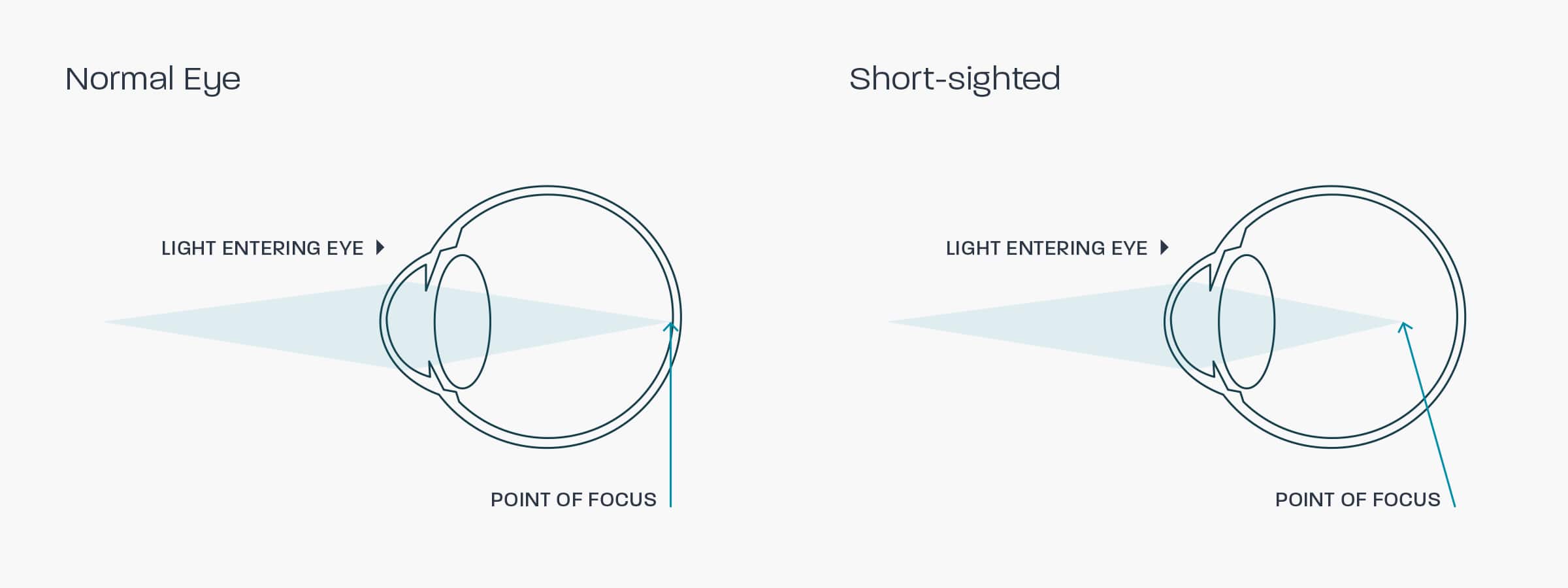
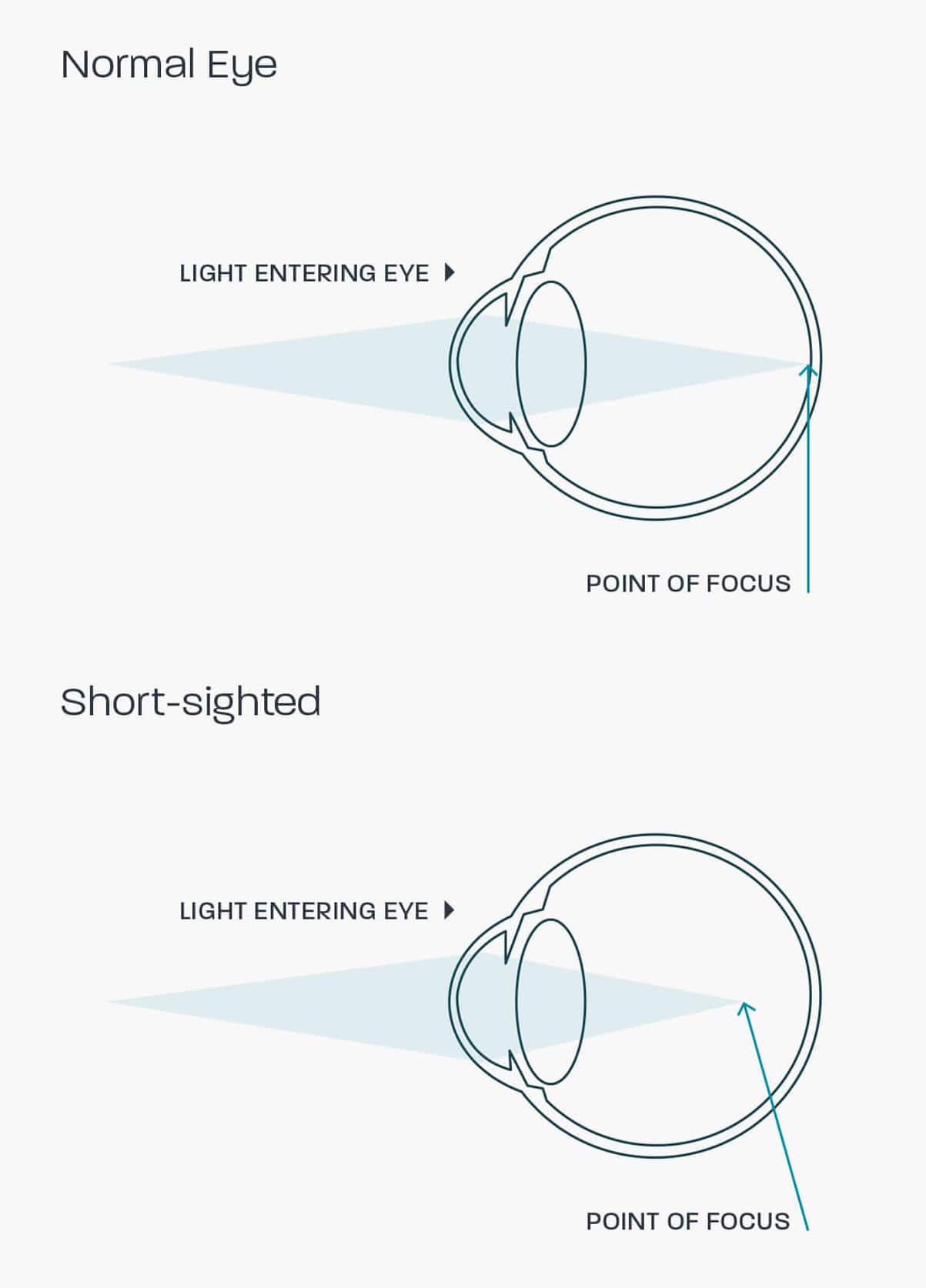
If your prescription falls into this range you’re not very short-sighted, so our Silver and Bronze packages will be the best choices, unless you’re very worried about the thickness of your lenses or want the additional Anti UV coating that comes with our thinner lenses. In terms of frame choice there are no limitations to choosing fully-rimmed, semi-rimmed, or rimless glasses.
Should your prescription fall between these lens powers you will notice the benefit of having thinner, lighter lenses as standard thickness lenses will be noticeably thicker at the edges, and they will be heavier. To reduce the thickness of your lenses by 20% select our Gold package which has a refractive index of 1.6. The refractive index compares how lenses of different materials bend or refract light. The higher the number, the thinner the lens will be.
If you want to hide the thickness of your lenses even more but don’t want to spend more on lenses you could opt for plastic-rimmed frames which are usually approx. 2-3 mm thicker than metal-rimmed ones. All our rimless glasses are supplied with thinner, tougher 1.6 lens material as standard.
We’d recommend that you choose a frame of no larger diameter than 52mm as the larger the lens size, the thicker your lenses will be. If you need a larger size than this to fit, or prefer out-size frames then you would be wise to choose a thinner lens.
The best solution for your prescription would be to select our Platinum Package lenses. They have a refractive index of 1.67 and will reduce the edge thickness by around 33% compared to a standard lens.
Again, limiting the size of the frames you order, or selecting a plastic-rimmed frame will help reduce the thickness and appearance of your lenses. As semi-rimless and rimless frames don’t have the rim of the frame to hide the lens thickness your lenses will appear thicker in these types of frames. Unfortunately, our bifocal lenses aren’t available in lenses thinner than 1.6.
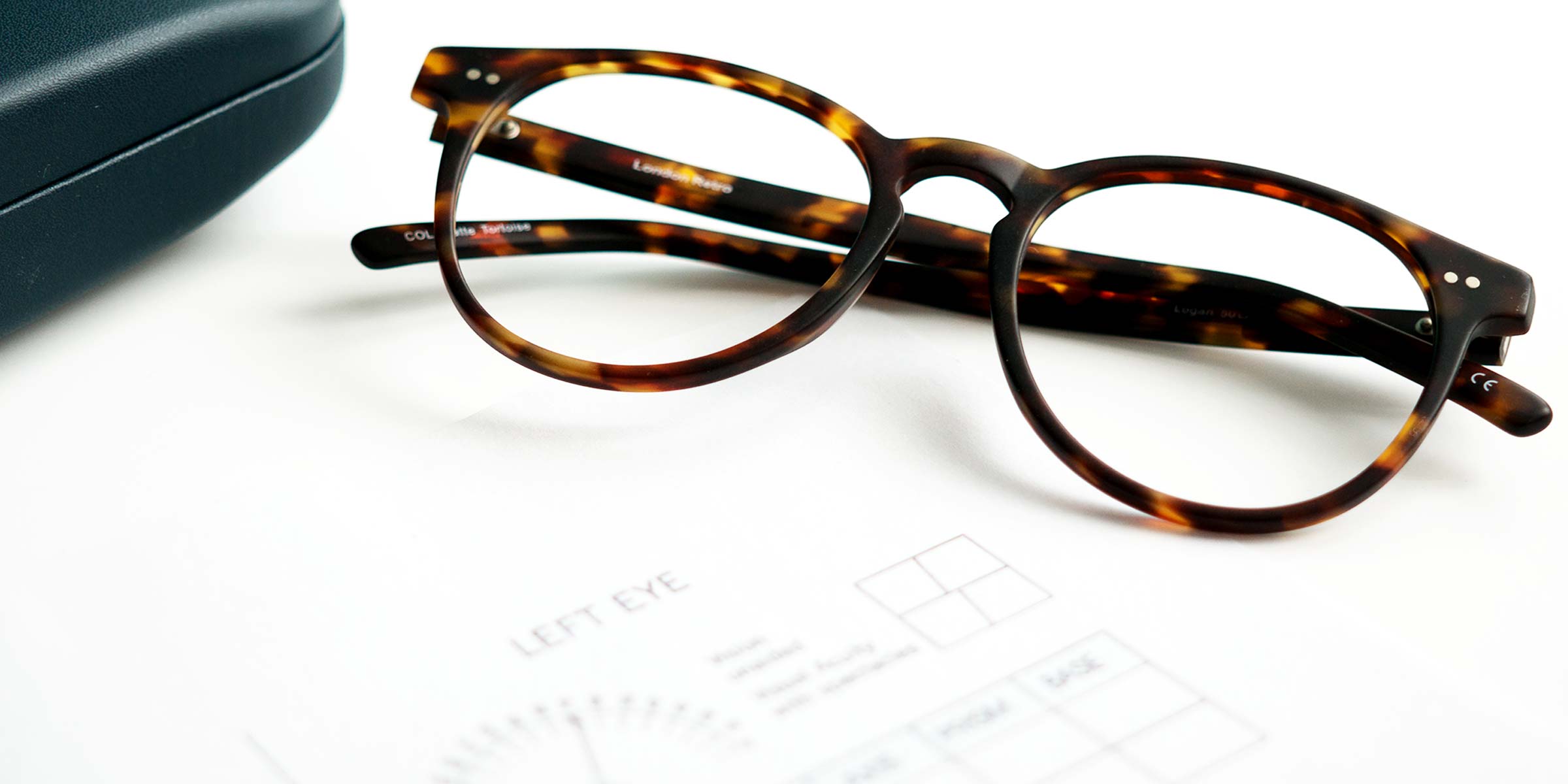

Our very thinnest Diamond package lenses will reduce the lens thickness by around 42% and have a refractive index of 1.74. These aren’t suitable for rimless frames, or as a tinted option, so they’re offered in clear plastic for fully-rimmed and semi-rimless frames. Please note, these lenses can only be ordered over the phone with one of our opticians.
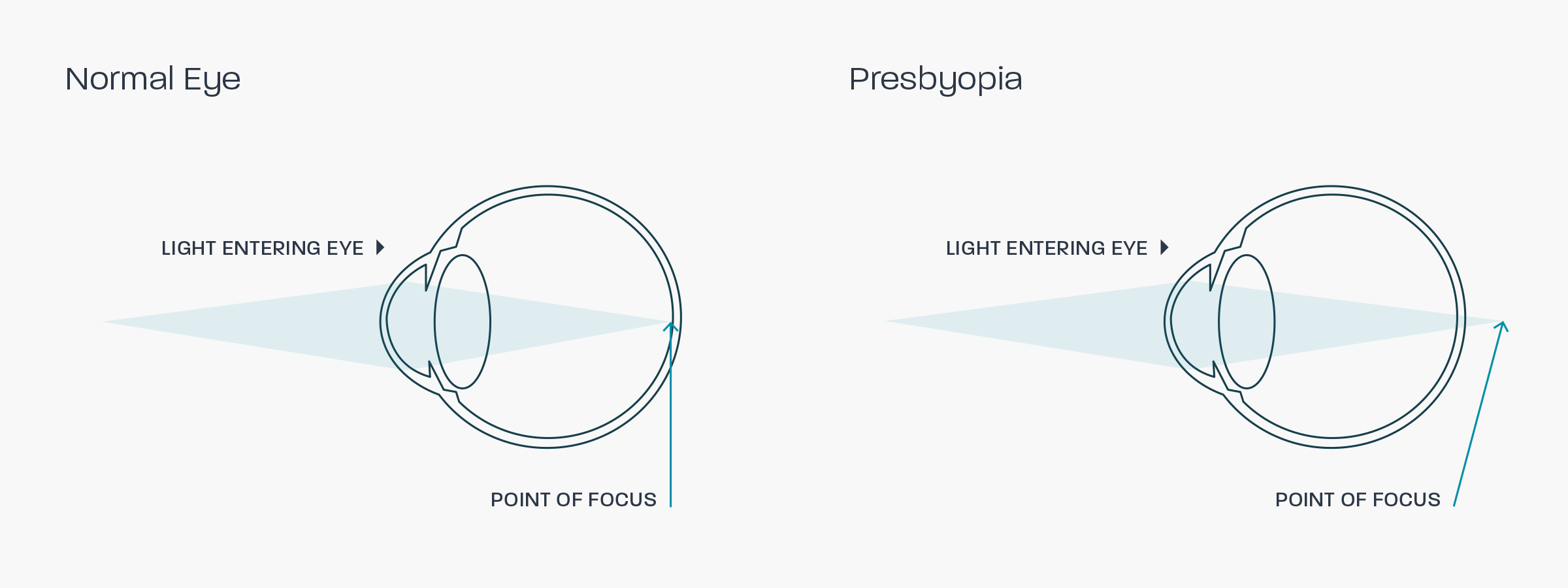
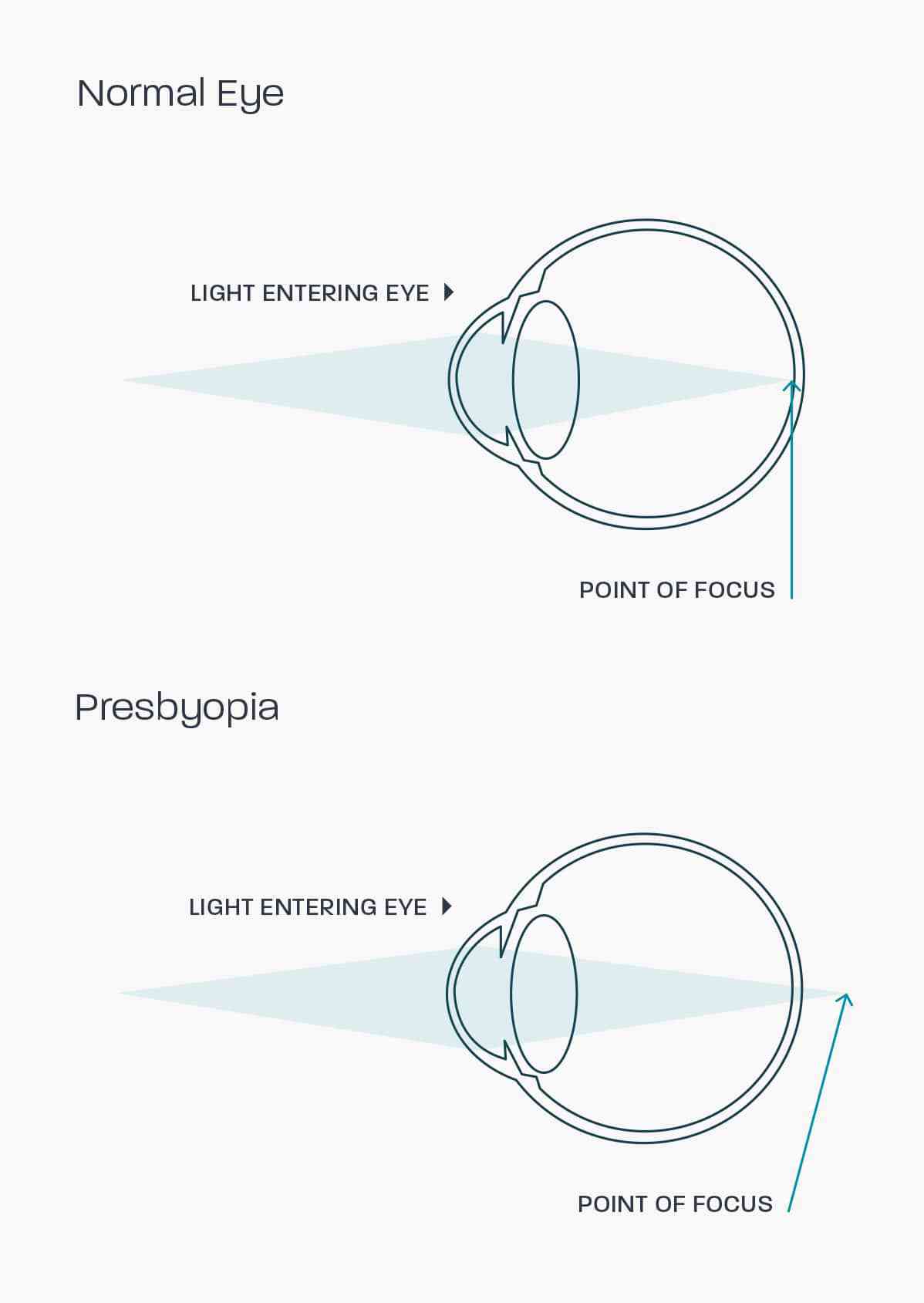
If your prescription falls within this range, the Silver or Bronze lens packages will be fine for you. You’re not limited on frame choice, so selecting any fully-rimmed, semi-rimmed, or rimless frames will be suitable.
Lenses to correct long-sightedness are always thicker in the middle than at the edges. If your prescription is over +2.25 you’ll notice that the centre is thicker than lower powered lenses, so you’d benefit from selecting a thinner lens. Our Gold package lenses will reduce the centre thickness by about 20% and have a refractive index of 1.6. Refractive index is a comparison of how lenses made of different materials bend or refract light. The higher the number, the thinner the lenses will be.
Fully-rimmed frames are ideal for long-sighted prescriptions as the edges can be ‘surfaced’ to make them very thin. This has the advantage of making the centre of the lenses a lot thinner and flatter. However, both semi-rimless and rimless frames need to have lenses with an edge thickness of at least 2mm to be glazed successfully. This means that the centre thickness will be more prominent in these frames. We supply the 1.6 lenses with all our rimless frames as standard, but they would need to be added for semi-rimmed frames to achieve the same result.
The Platinum package lenses would be best if your prescription is between these lens powers. The Platinum package lenses have a refractive index of 1.67 and will reduce the lens thickness by around 33% compared to a standard thickness lens. Lenses will be significantly thicker in both semi and fully-rimless frames, so if you want your lenses as thin as possible choose a fully-rimmed frame.
We recommend limiting your frame size to 52mm or less, and choosing a thicker-rimmed frame to hide the thickness of the lenses. Our bifocals aren’t supplied in lens materials with a refractive index greater than 1.6.
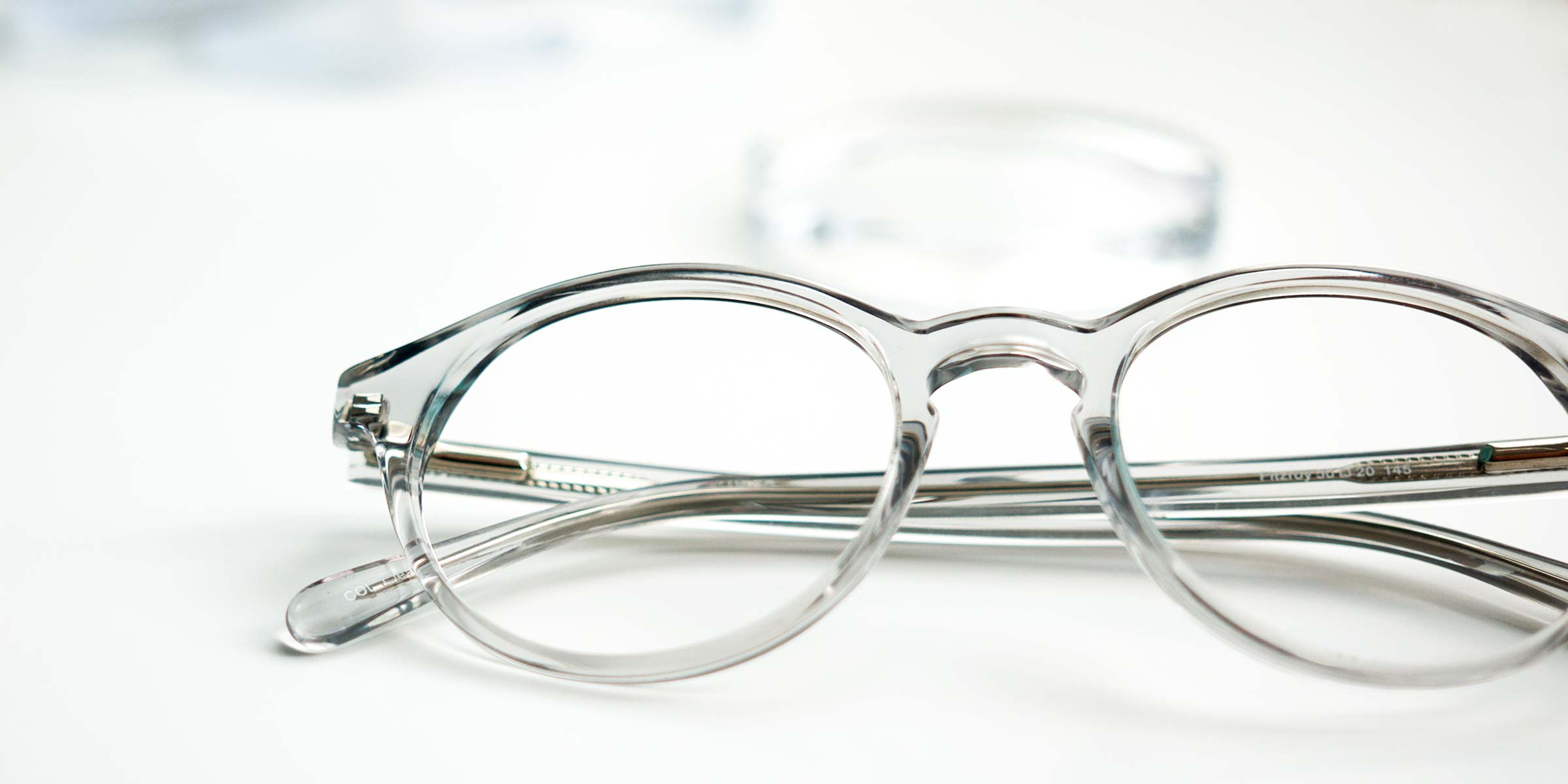

We offer a Diamond lens package with a refractive index of 1.74 for the strongest lens powers. It will reduce the thickness of the lenses by approx. 42%. Unfortunately it’s not suitable for rimless frames, and they are only available as clear lenses.
The Diamond lens package can only be ordered over the phone with one of our opticians. Choosing as small a frame as you can get away with, ideally made of plastic, will limit the lens thickness. We wouldn’t recommend selecting a semi-rimmed or rimless frame if your prescription is over +6.00.